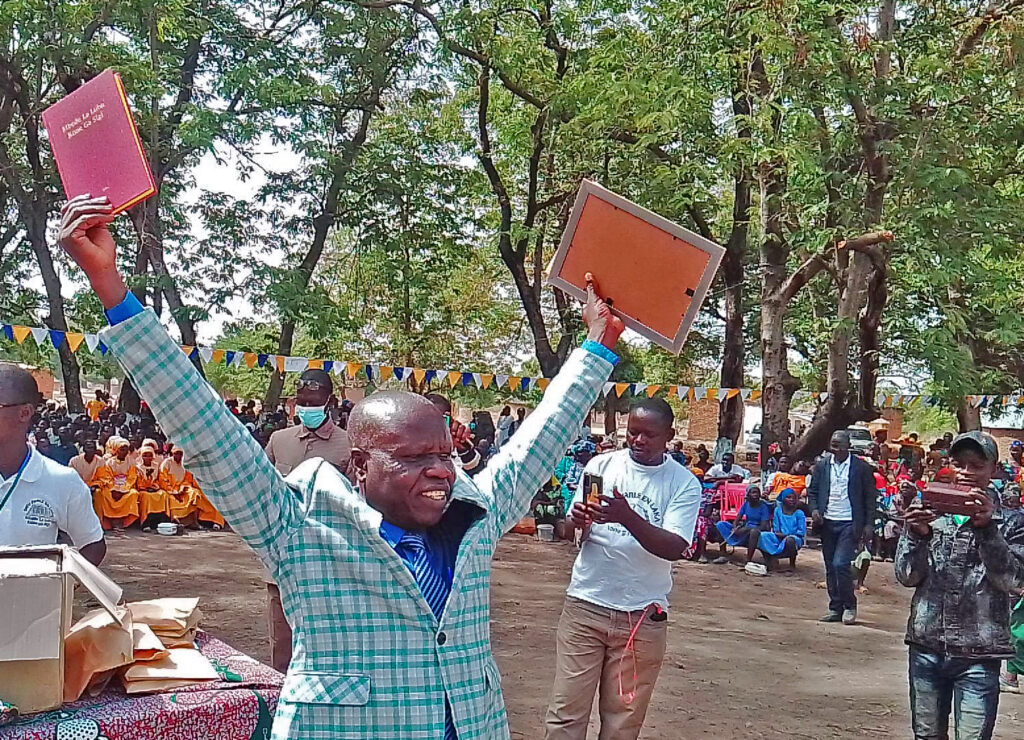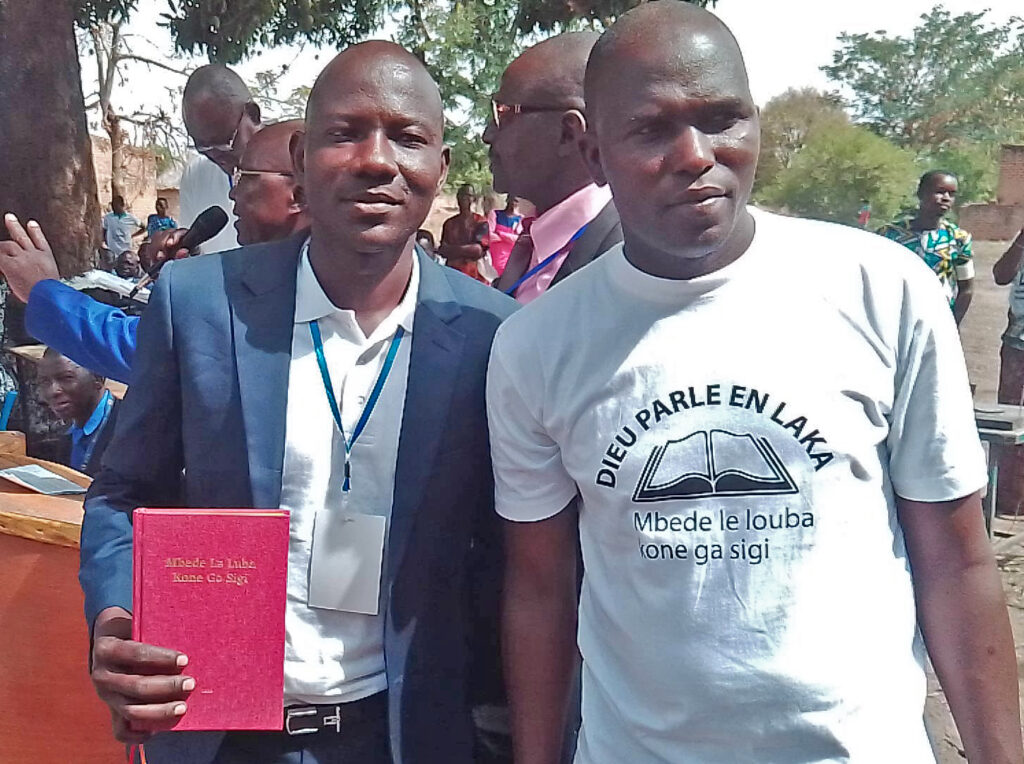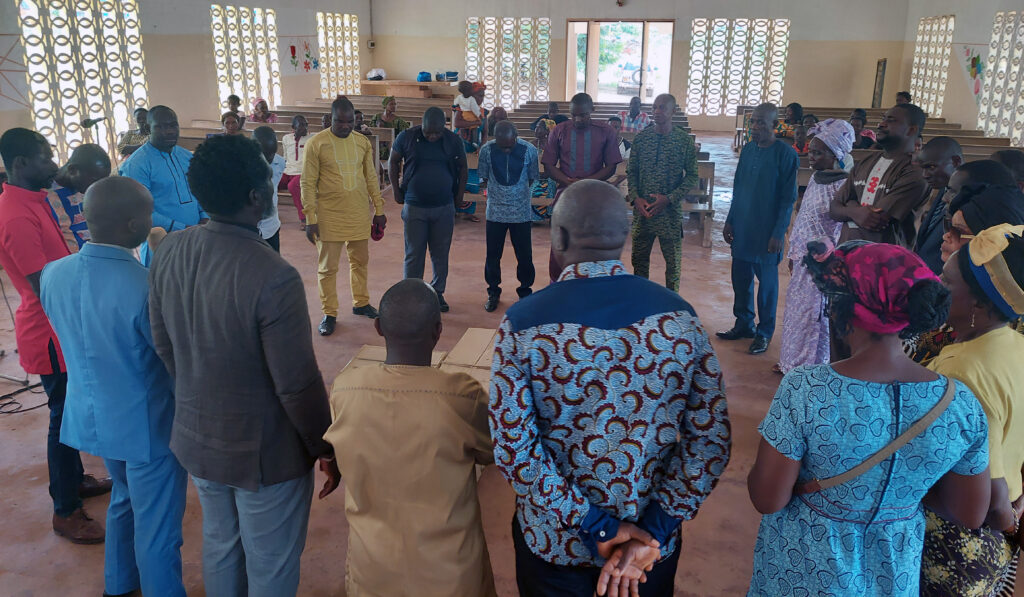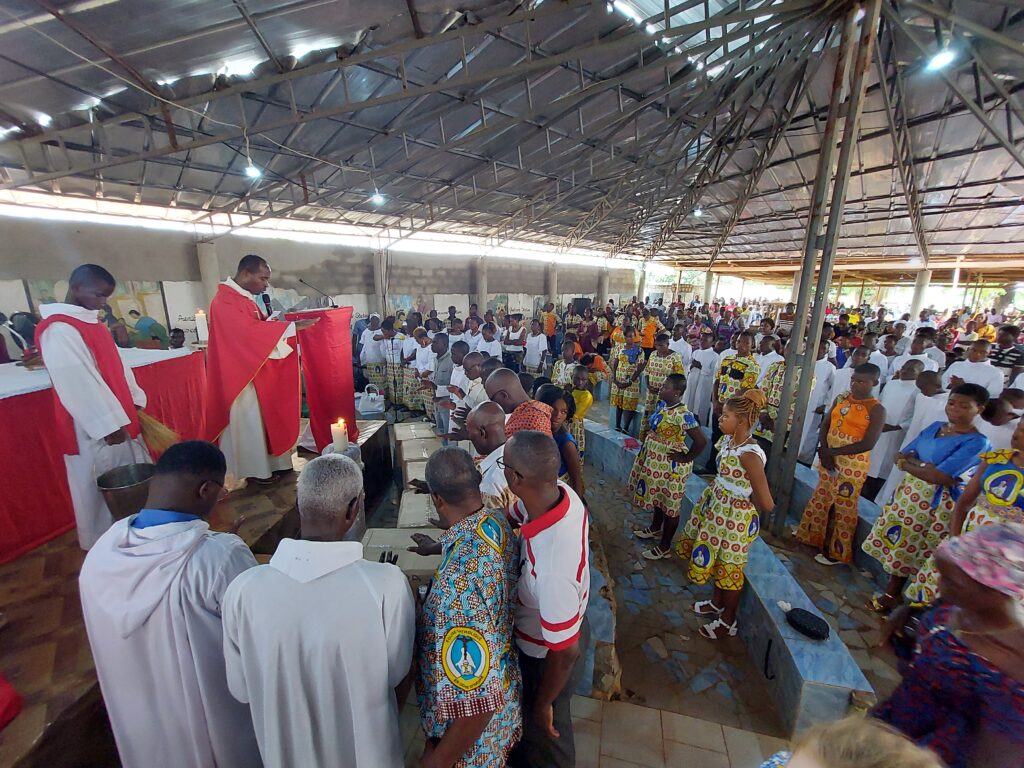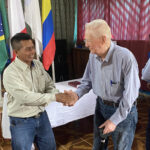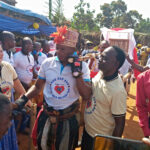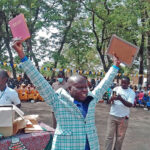No Easy Feat
A man blows on a large curled triton shell called a ndrah in the Nali language. Traditionally, the Nali people on Manus Island, Papua New Guinea, trumpet on these shells to call people to gather for a meeting or funeral.
But on this special day, the people trumpeted to call villagers to an event they had looked forward to for over 30 years—the dedication of half of their Nali New Testament. Preparing to host this one-of-a-kind celebration had been no easy feat!
The portions of Scripture they were going to dedicate almost didn’t arrive in time for the dedication. Jerry and Sue Pfaff—the translation advisors of the project—had ordered copies of the Waterproof Bible®, but due to the Coronavirus, they couldn’t be printed in time. The print shop in Hong Kong had shut down for a few weeks after the virus outbreak. Thankfully, their children were able to bring 170 regular paper Bibles that had been printed at the last minute in the U.S.
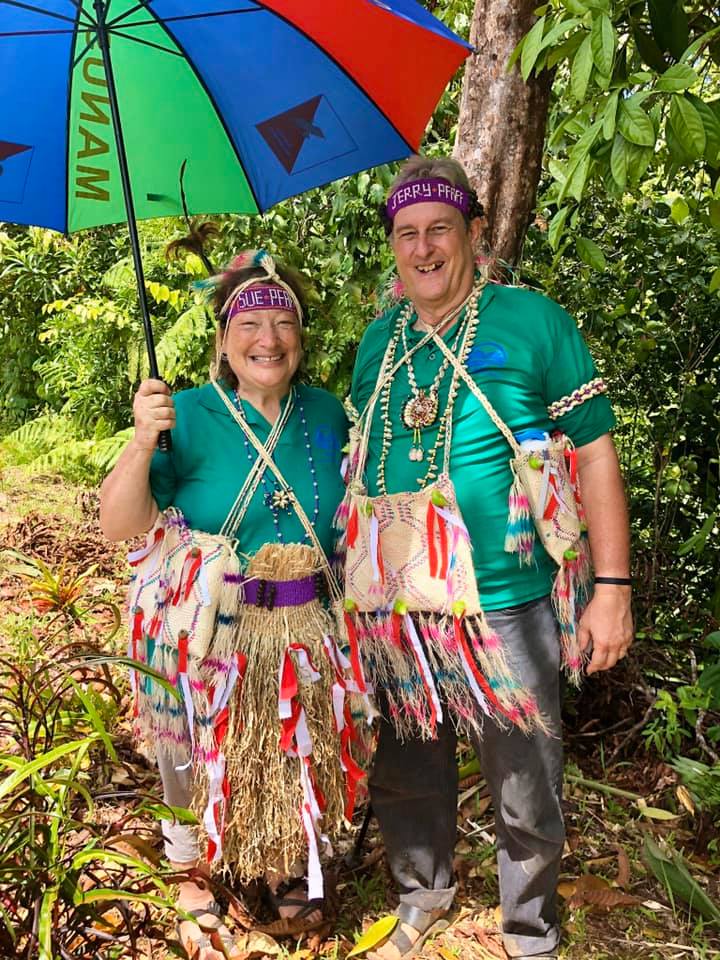
Special guests traveling to the dedication also faced challenges just to get there.
The flights in and out of Manus Island for the dedication were among the last ones to fly before COVID-19 travel restrictions hit. According to Jenise Burgess, the flight coordinator for these flights, “What a beautiful reminder that God is still working and moving all around the world!”
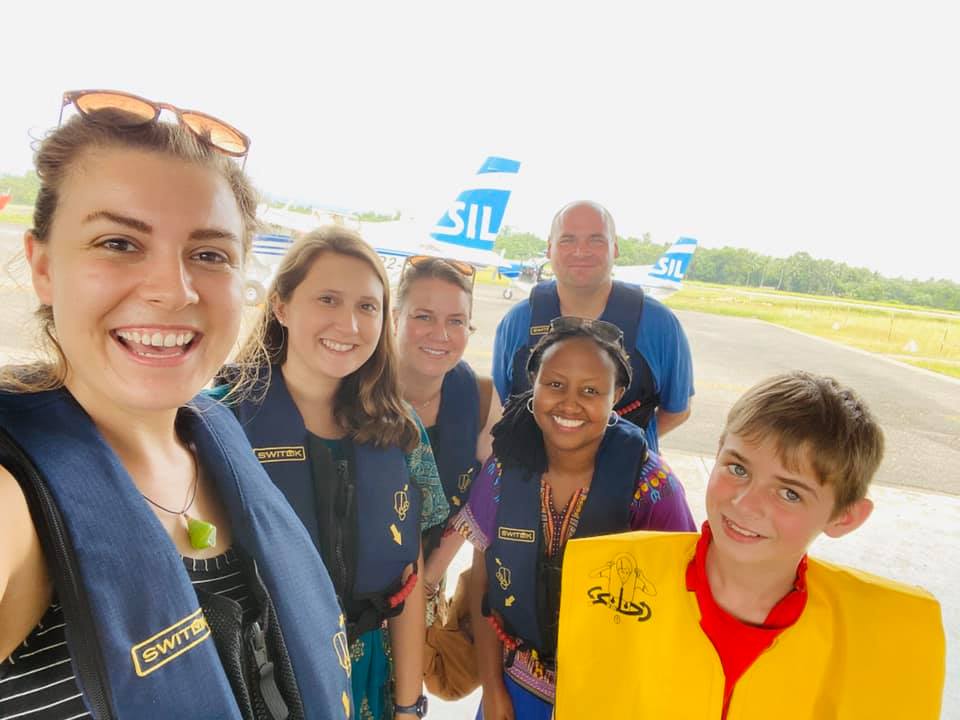
Our JAARS-trained pilots flew them in two Kodiaks from Ukarumpa, Papua New Guinea, stopping at the coastal town of Madang to refuel. They then flew to Los Negros Island, the easternmost point of Manus connected by road to the Manus mainland.
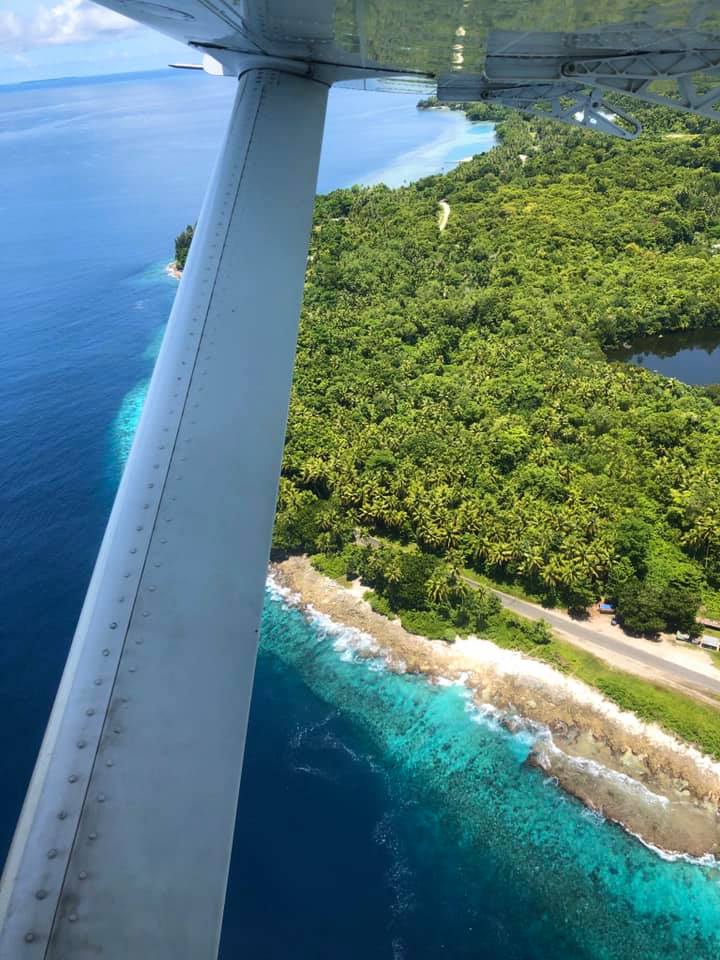
After riding to town in a crowded rented vehicle, the group boarded three hired dinghies for the next leg of their long journey. Several members of the group had special protective gear: life vests provided by the water safety program at JAARS.
Thankfully the sea was calm as the guests traveled to Lawes Village—the ‘gateway’ to the road that would take them the rest of the way to Sirrah Village, where the dedication would take place. The villagers at Lawes welcomed everyone by making a pathway of trees in the water for them to follow.
This hospitality extended into the village itself. Although the group was merely passing through, the villagers provided them with fresh fruit—coconuts, oranges, and starfruit—to eat and take with them.
The group would need this extra energy—they had a long ride ahead of them.
They climbed into a rented truck that took them from Lawes village on the coast to Sirrah in the interior of the island. The road was muddy from recent downpours, as well as long and bumpy. The truck got stuck so badly at one point that they all had to pile out to dig out the truck and push.
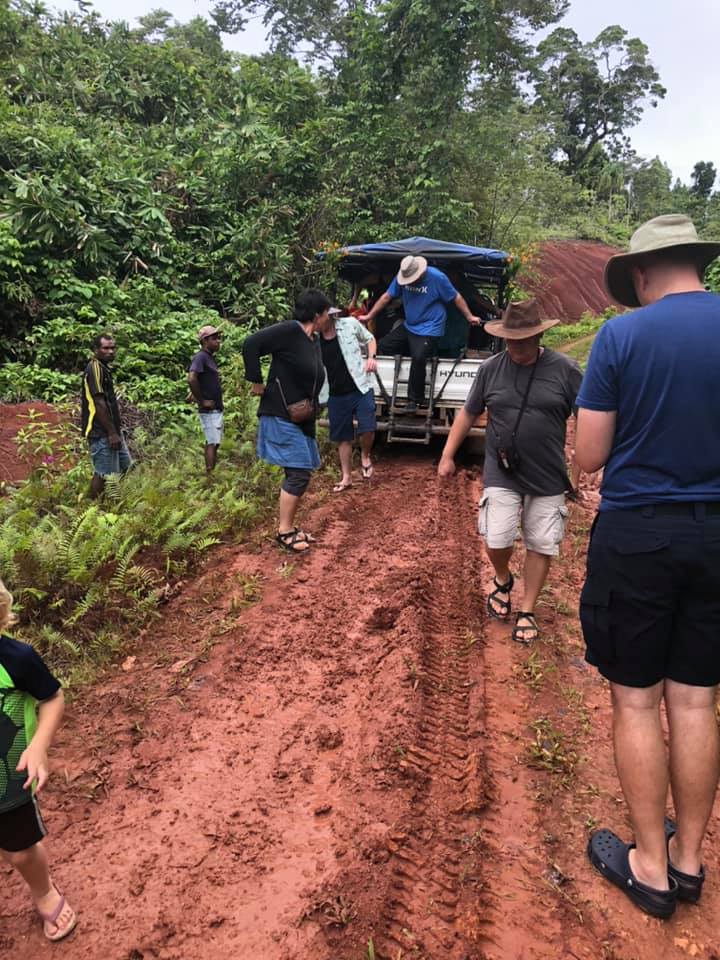
A ride that should have taken 45 minutes to an hour took two hours.
But finally, the group won the battle with the mud and arrived, exhausted and sore, in the village of Sirrah.
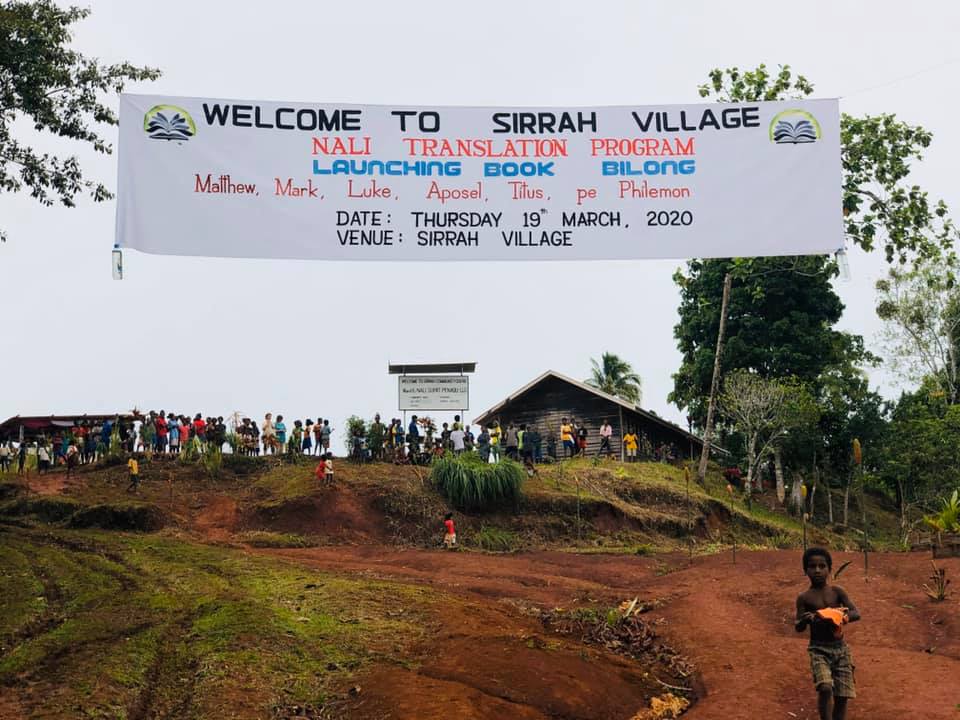
The next day, the long-awaited celebration began. As the villagers paraded into the main area—their outfits decorated with green snail shells found only on Manus—someone blew the ndrah shell, trumpeting their joy and eagerness.
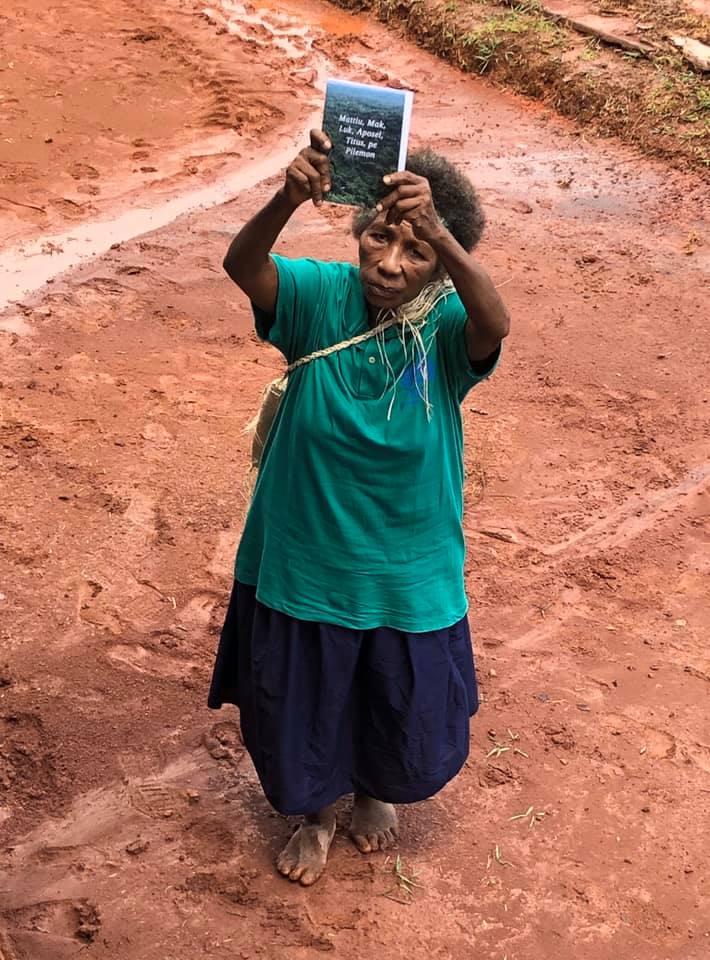
David Ndrayeu—one of the men who first had the vision of translating the Bible into his language and who had served for three decades as chairman of the Nali Translation Committee—received a special honor. Two men carried him, now crippled and elderly, in a chair to the platform decorated with colorful hibiscus and bird-of-paradise flowers. They wanted him to be the first person to receive the first half of the New Testament.
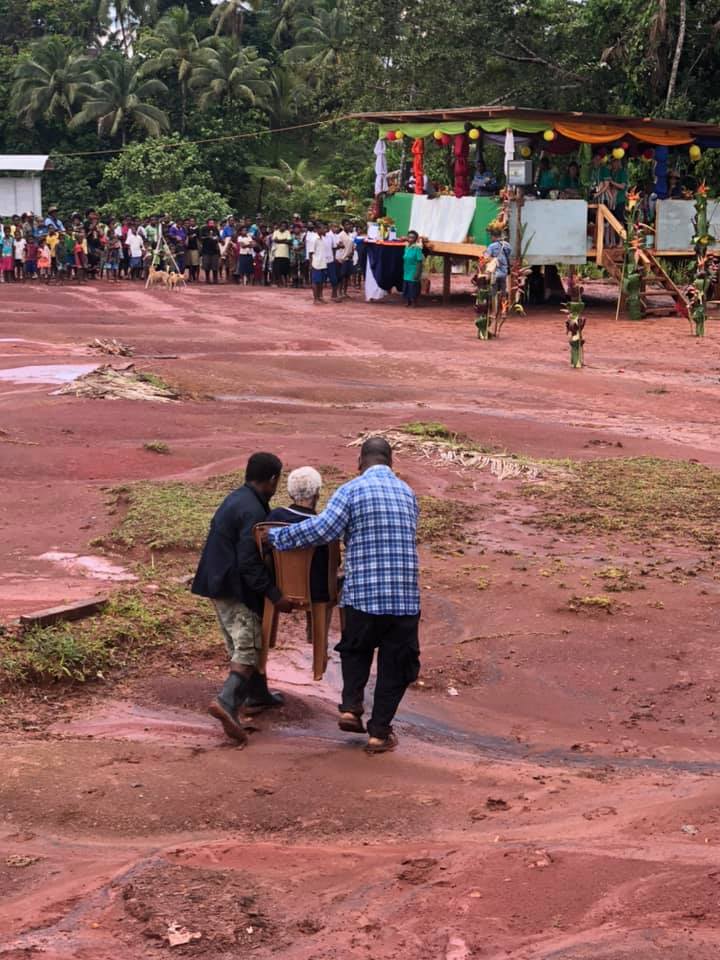
“It was a really sweet and powerful moment,” Jenise recalls. “His wife was there and had big tears running down her face.”
Just two weeks after the dedication, David passed away. Praise God that he was able to see the Lord fulfill his vision as he held half of the New Testament in his hands and watched his people receive their own copies!
Join us in praying that the Nali people will stay committed to the task and will soon have the entire Bible. Pray that the Word would change lives in this people group for generations to come.



























































